India is currently participating in the 3rd Arctic Science Ministerial (ASM3) from 8-9 May 2021, a global platform created to hold discussions on research and cooperation in the Arctic region.
The session, being attended by Union Minister of Science and Technology, Dr Harsh Vardhan, is curated on this year’s theme, which is ‘Knowledge for a Sustainable Arctic’. India enjoys an ‘Observer’ status in the Arctic Council with twelve other countries (Japan, China, France, Germany, UK, Italy, Switzerland, Poland, Spain, Netherlands, Singapore, and South Korea).
Highlighting the issues raised in this Ministerial, The Minister of Science and Technology shared India’s vision and long-term plans for research, work, and cooperation in the Arctic region with all the participating stakeholders.
Dr. Harshvarshan welcomed collaborations towards strengthening observational systems and sharing of data to enhance knowledge. “India would continue to play a positive role in deepening shared understanding of the Arctic through observation, research, capacity building, as well in promoting sustainable development of the region through international cooperation”, the Minister stated, proposing that India may be given an opportunity to host the next or future ASM.
India shared its plan to deploy open ocean mooring in the Arctic for long-term monitoring of upper ocean variables and marine meteorological parameters in line with observing systems in the Arctic, both in-situ and by remote sensing.
The Ministry of Earth Science in a release informed that the launch of NISER (NASA-ISRO Synthetic Aperture Radar) satellite mission is underway in collaboration with the USA which aims to conduct global measurements of the cause and consequences of land surface changes using advanced radar imaging.
Moreover, the country also reaffirmed its continued contributions to the Sustained Arctic Observational Network (SAON).
The Arctic Council and History of ASM
The Arctic Council is a high-level intergovernmental forum that promotes cooperation, coordination, and interaction towards sustainable development and environmental protection in the Arctic.
India, being a part of the Arctic Council, contributes to the international deliberations that aim to develop effective cooperative partnerships towards a safe, stable, and secure Arctic.
The First ASM1 was hosted by the United States in 2016, following which the ASM2 was co-hosted by Germany, Finland, and the European Commission in 2018.
This year, ASM3 has been jointly organised by Iceland and Japan which is the first Ministerial meeting being held in Asia.
India and the Arctic
India began its research and observational footprints in the Arctic back in 1920 when it signed the Svalbard Treaty in Paris.
India since July 2008, has held a permanent research station in the Arctic called Himadari at NyAlesund, Svalbard Area in Norway. The country also deployed a multi-sensor moored observatory called IndARC in the Kongsfjorden fjord in July 2014.
The National Centre for Polar and Ocean Research (NCPOR), Goa, is the prime body through which research in the Arctic region from India is coordinated, conducted under the Ministry of Earth Sciences, Government of India.










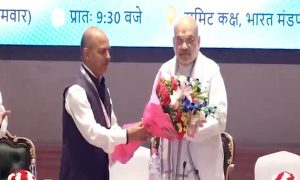

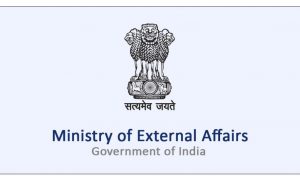

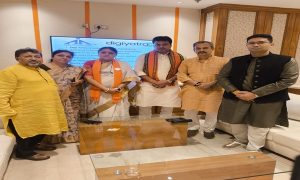

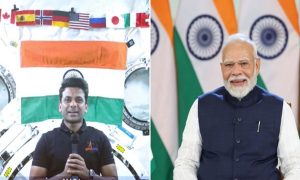









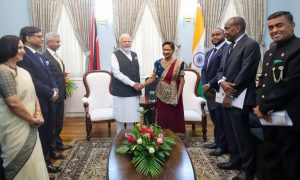

 WhatsApp us
WhatsApp us